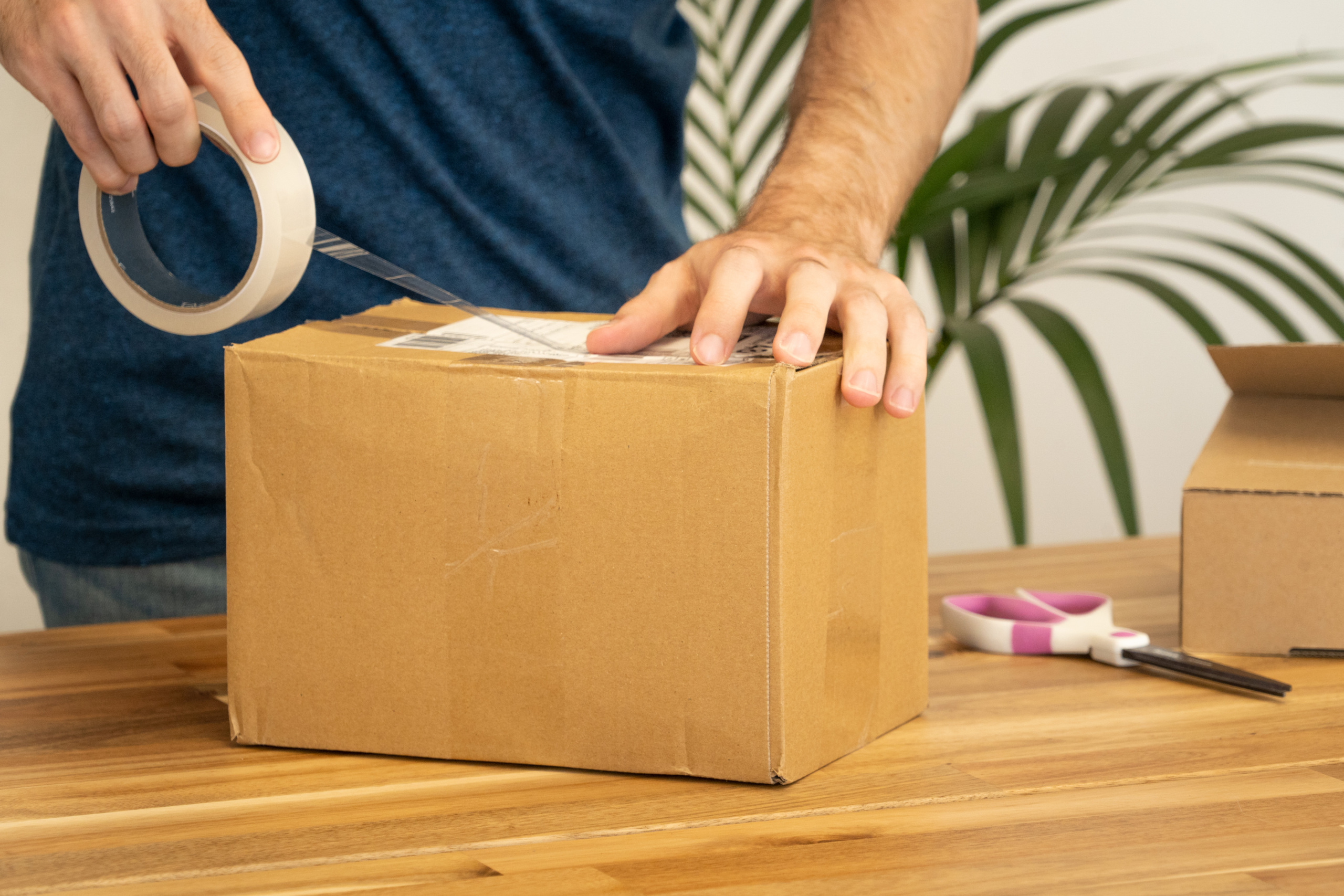
Bigger Better Bottle Bill Fact Sheet, H3690 and S2104
A Massachusetts fact sheet about updating the bottle bill (aka deposit return law)
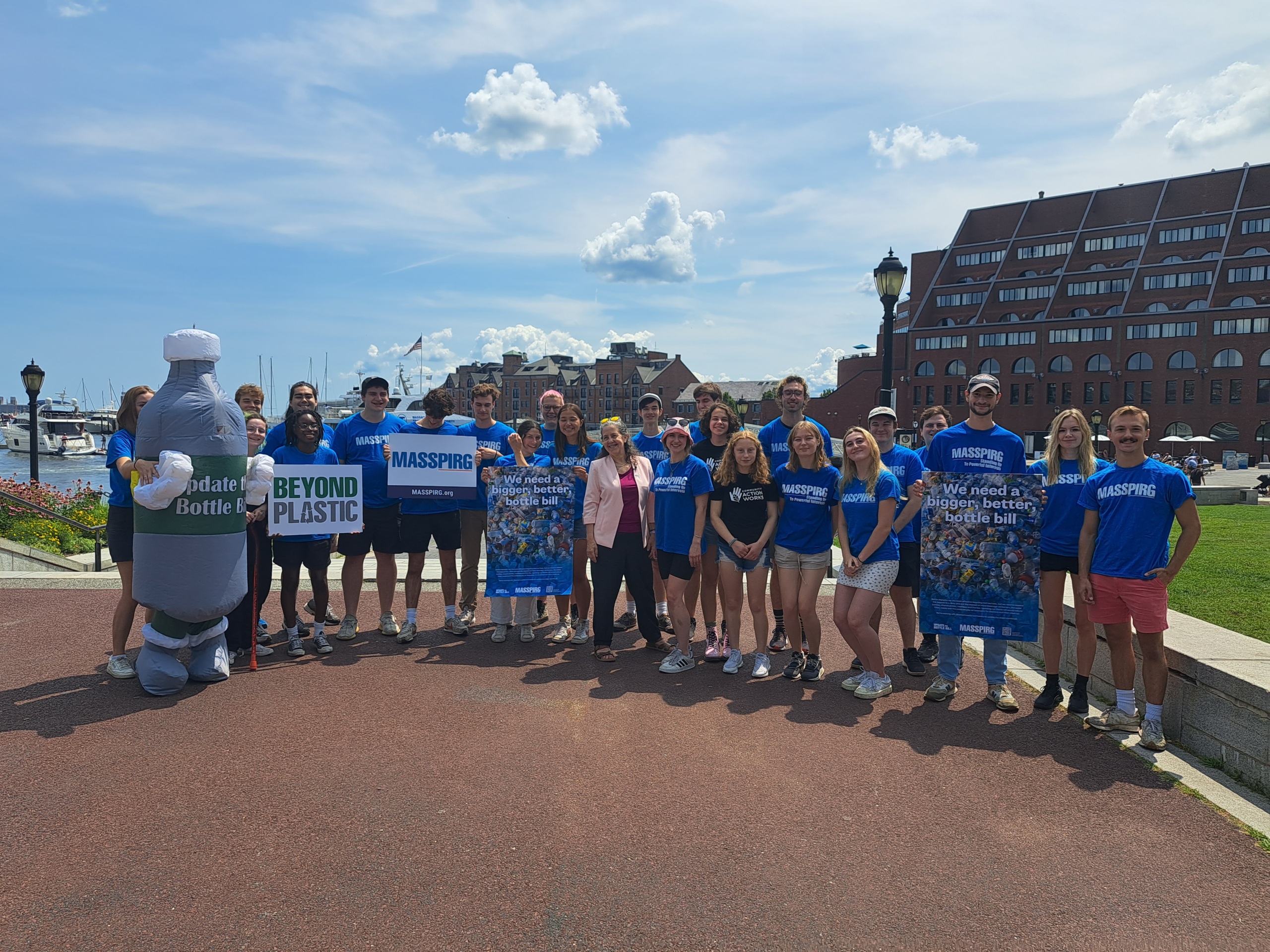
Downloads
The Problem
Each year, Massachusetts sends nearly 6 million tons of waste to landfills and incinerators that pollute our air, water, and environment.
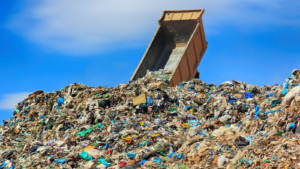
Photo by Jose Angel Aster Rocha Shutterstock | Shutterstock.com
Only 9% of plastics ever produced have been recycled; the rest are buried or burned in landfills and incinerators.
The Solution
We can reduce waste step by step, and an important step is reducing the waste that comes from beverage containers. We know that deposits on beverage containers work to reduce waste and litter, so we need to update our Bottle Bill.
According to MassDEP, “There’s no other recycling program that has achieved the same rates as deposit systems”. But the law has not been updated since its passage in 1982. With all the ‘new age’ beverages that have come on the market since then — including bottled water, juices, nips, and more — only 42% of beverage containers in MA are currently included in the Bottle Bill. And the devaluation of the nickel means a 5¢ deposit leaves less incentive for consumers to redeem their beverage containers than it once did.
We need a Bigger, Better Bottle Bill so that we can get more beverage containers recycled instead of littered, buried, or burned. By updating our bill we can achieve the success of other states with updated container deposit laws.
BETTER BOTTLE BILL
H3690 – S2104, Rep. Marjorie Decker, Sen. Cindy Creem
WHAT THE BILL DOES:
- Covers more types of containers. This bill would put a deposit on water bottles, vitamin drinks, nips, and other beverage containers that did not exist when the original bill was passed.
- Increases the deposit from 5¢ to 10¢.
- Makes redeeming your deposits easier.
Why recycling beverage containers is important
6 million tons of waste are disposed of in MA every year, over 94 thousand tons of which are beverage containers. 14% of all litter comes from beverage containers, which trash our parks, beaches, rivers, lakes, and streets.
As of 2018 the beverage market in MA has grown to 6.7 billion containers sold yearly and 58% of these, 3.8 billion are not included under the Bottle Bill. Of these containers without a deposit, 2.9 billion (76%) are buried or burned.
Wasting resources and causing pollution
Plastic: Only 9% of plastic has ever been recycled, and the rest is not only wasted but harmful. Of the beverage containers we purchase each year in MA, 3.4 billion are plastic, and the majority aren’t covered by the deposit, so they end up as litter or trash. Disposed plastic in landfills contaminates groundwater and in incinerators it releases pollutants and causes health problems in local communities.
Glass: Glass is 100% recyclable with no loss in quality. 936 million glass containers are sold in MA each year and if they were all covered by a deposit we’d be saving resources and cutting emissions. Since new glass can be made with recycled glass, for every glass container made with even 10% recycled glass, we cut 5% of the CO2 emissions produced when only virgin glass is used.
Aluminum: Aluminum is the most valuable recycled material. Recycling aluminum saves 90% of the energy that would be used in manufacturing new aluminum. Smelting new aluminum leads to the release of perfluorocarbons which are 9,200 times more harmful than carbon dioxide in terms of their effect on global warming. Recycling old aluminum, however, only requires 5% of the energy and releases 5% of the associated greenhouse gasses.
On average, states with container deposit laws recycle aluminum, plastic and glass containers at double the rate of states without Bottle Bills. In states with bottle bills, aluminum cans were returned at a rate of 84%, compared to 39% in states with other systems in place.
Updating the bottle bill in other states
Success in Oregon
After Oregon amended their Bottle Bill in 2017 to increase their deposit to 10¢ and include more types of beverage containers, their redemption rates skyrocketed from 64% to 90%. In 2018, they reached an all time high of 2 billion bottles recycled. This accompanied a 50% increase in sign-ups for the state’s BottleDrop services, which let citizens drop off bottles and credit them to an account.
Success in Michigan
Michigan’s Bottle Bill has a 10¢ deposit and has slowly been adding to the types of beverage containers covered by deposit, going as far as to add kombucha in 2019. Michigan has an 89% redemption rate, and since implementing their Bottle Bill, has seen their waste stream reduced by 6-8% each year.
Topics
Authors
Janet Domenitz
Executive Director, MASSPIRG
Janet has been the executive director of MASSPIRG since 1990 and directs programs on consumer protection, zero waste, health and safety, public transportation, and voter participation. Janet has co-founded or led coalitions, including Earth Day Greater Boston, Campaign to Update the Bottle Bill and the Election Modernization Coalition. On behalf of MASSPIRG, Janet was one of the founding members of Transportation for Massachusetts (T4MA), a statewide coalition of organizations advocating investment in mass transit to curb climate change, improve public health and address equity. Janet serves as Chair of the Board of Directors for the Consumer Federation of America and serves on the Common Cause Massachusetts executive committee, Alliance for a Healthy Tomorrow board of directors, and Department of Environmental Protection Solid Waste Advisory Committee. For her work, Janet has received Common Cause’s John Gardner Award and Salem State University’s Friend of the Earth Award. Janet lives in Cambridge, Massachusetts, with her husband and two sons, and every Wednesday morning she slow-runs the steps at Harvard Stadium with the November Project.
Find Out More
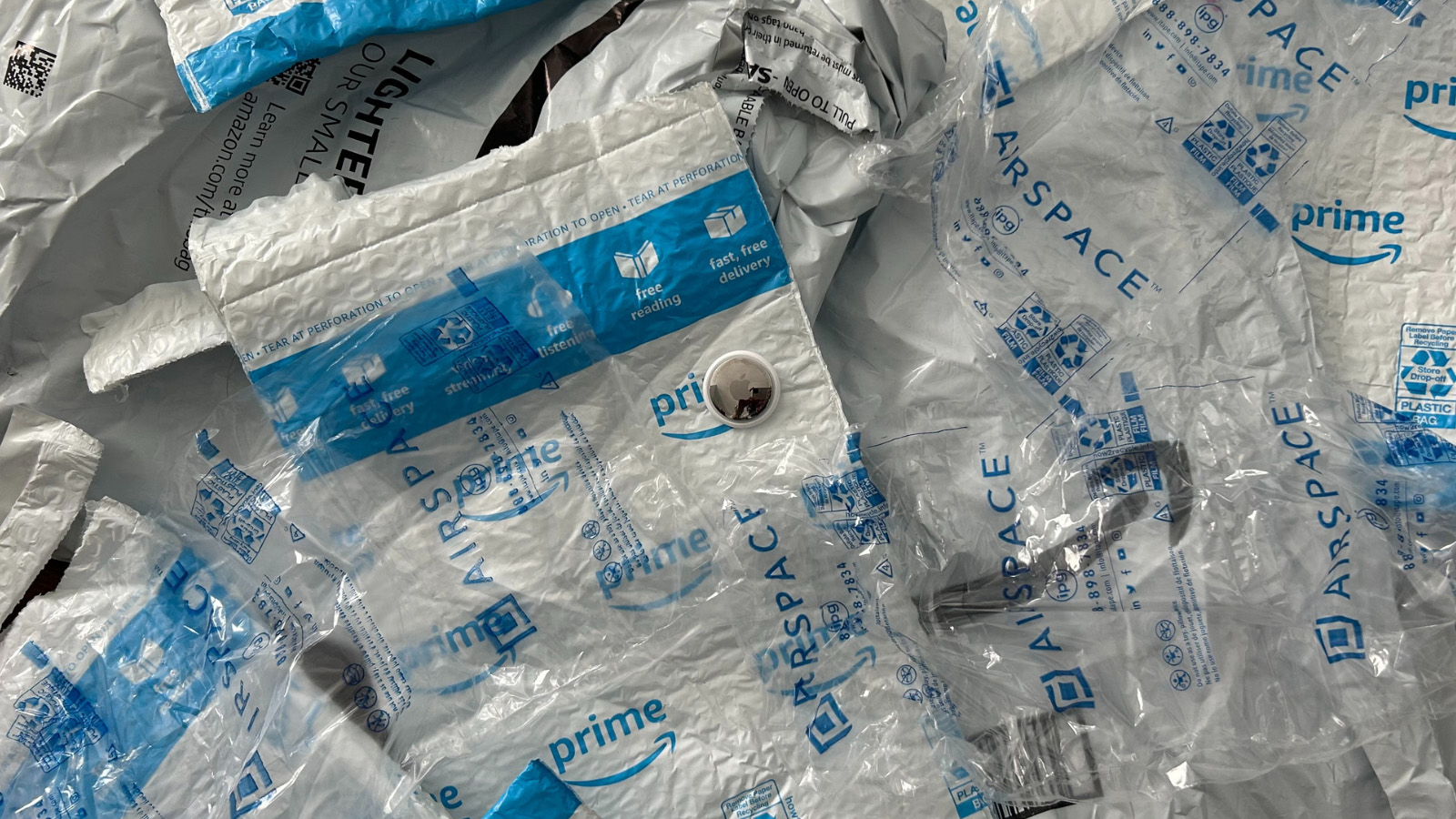
Truth in recycling

The high cost of fast fashion
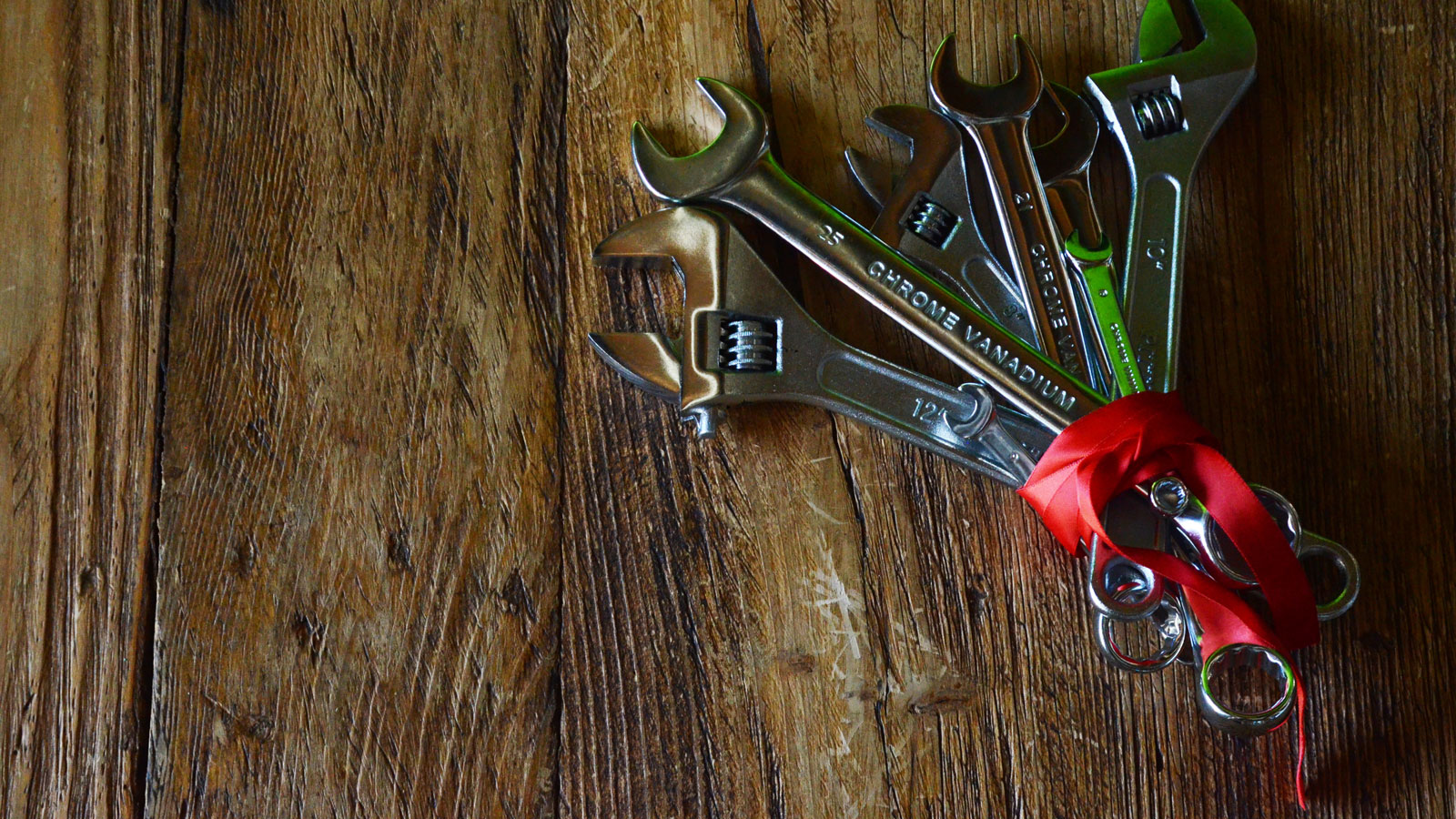
Fixed for the Holidays
